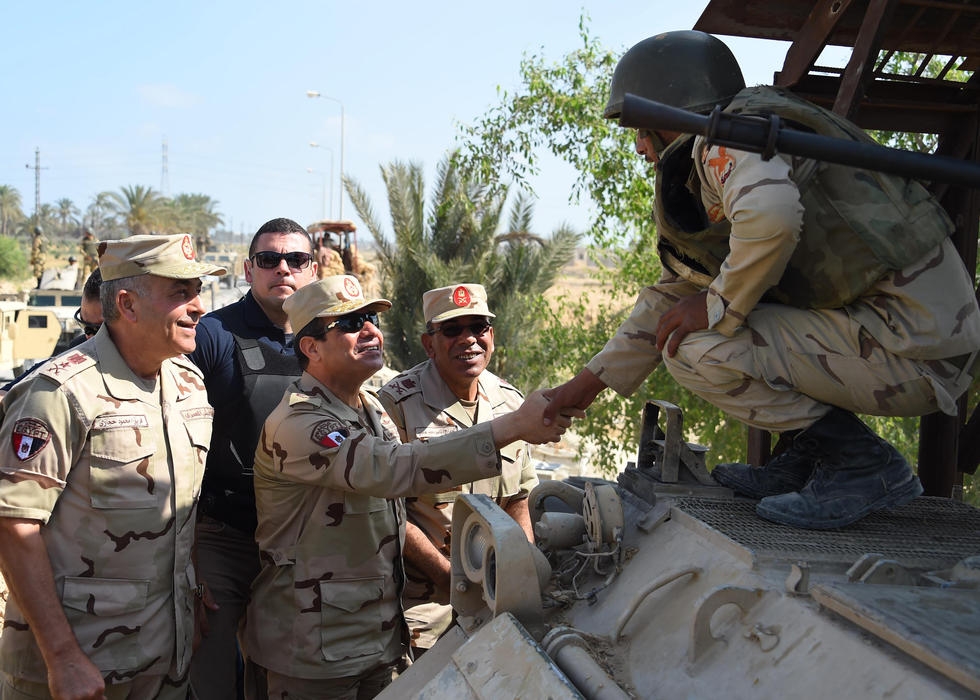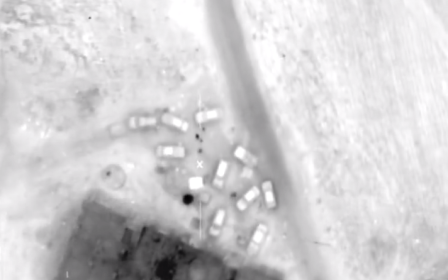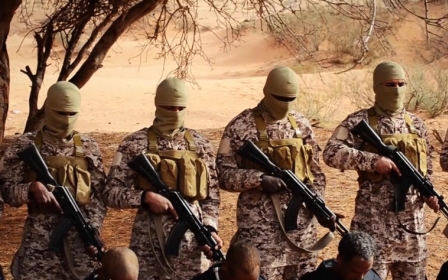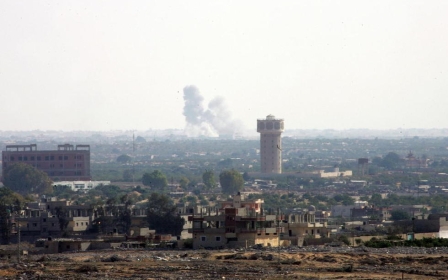Egypt draft anti-terror law threatens journalists with prison over 'false' reporting

Egypt may take legal action against journalists who report "false" military death tolls in militant attacks that contradict official statements, if a new anti-terrorism law is approved, officials told AFP on Sunday.
President Abdel Fattah al-Sisi, who called for tougher laws following the assassination of his top prosecutor last week, is expected to approve the law within days.
The cabinet has already approved the draft law.
Article 33 of the draft law, published in several Egyptian newspapers, stipulates a minimum two-year sentence for "reporting false information on terrorist attacks that contradicts official statements".
The law also opens up the possibility of deportation and house arrest.
Two officials, including Justice Minister Ahmed al-Zind, confirmed the wording of the law.
Zind said the law was prompted in part by coverage of Islamic State group attacks on Egyptian soldiers in the Sinai Peninsula on 1 July.
The military spokesman said 21 soldiers and more than 100 militants were killed in the attacks and ensuing clashes, after security officials said dozens more soldiers had been killed.
The government has accused foreign media who reported the higher death toll of exaggerating troop casualties.
"The day of the attack in Sinai some sites published 17, then 25, then 40, then 100 dead," Zind said.
Zind said such reports affected the "morale" of the country.
"There was no choice but to impose some standards," he said. "The government has the duty to defend citizens from wrong information."
"I hope no one interprets this as a restriction on media freedoms. It's just about numbers (in death tolls)," he said.
"If the army says 10 died, don't report 20."
Much of the media in Egypt has been supportive of the government, but the country's Journalists Syndicate condemned what it called "new restrictions on press freedoms" in the draft law.
"This is a dangerous article that violates the constitution," the union said in a statement.
"It violates the reporter's right to seek information from various sources... it allows the executive authorities to act as censors, and the judges of truth," it said.
Egypt has been fighting an insurgency in Sinai since the army, then led by Sisi, overthrew Muslim Brotherhood leader and elected president Mohamed Morsi in 2013.
The attacks have killed hundreds of policemen and soldiers, while more than 1,400 people, mostly Morsi supporters, have been killed in a crackdown on protests.
New MEE newsletter: Jerusalem Dispatch
Sign up to get the latest insights and analysis on Israel-Palestine, alongside Turkey Unpacked and other MEE newsletters
Middle East Eye delivers independent and unrivalled coverage and analysis of the Middle East, North Africa and beyond. To learn more about republishing this content and the associated fees, please fill out this form. More about MEE can be found here.




